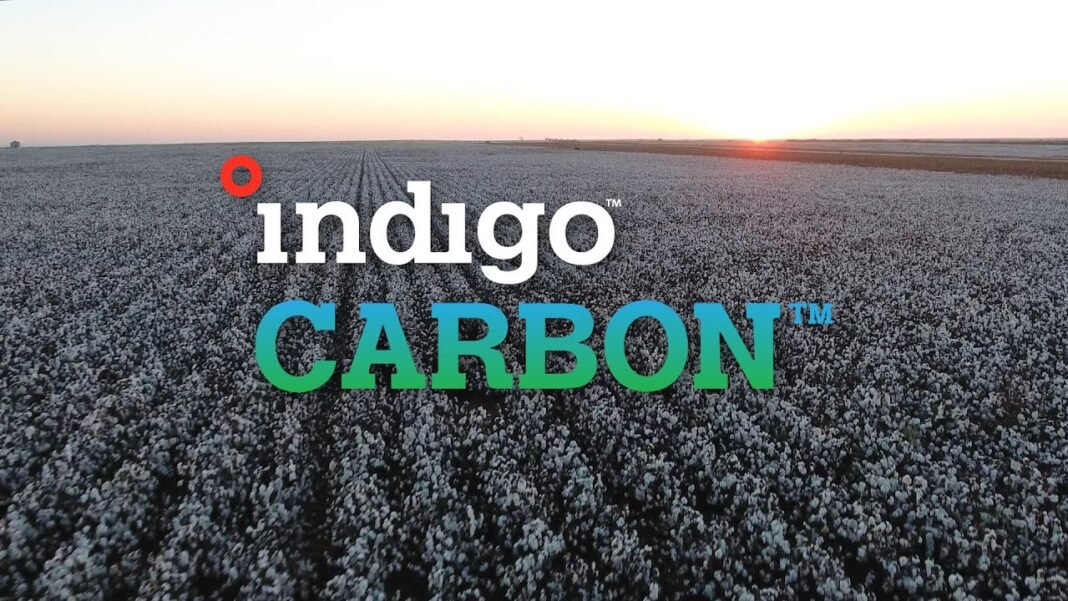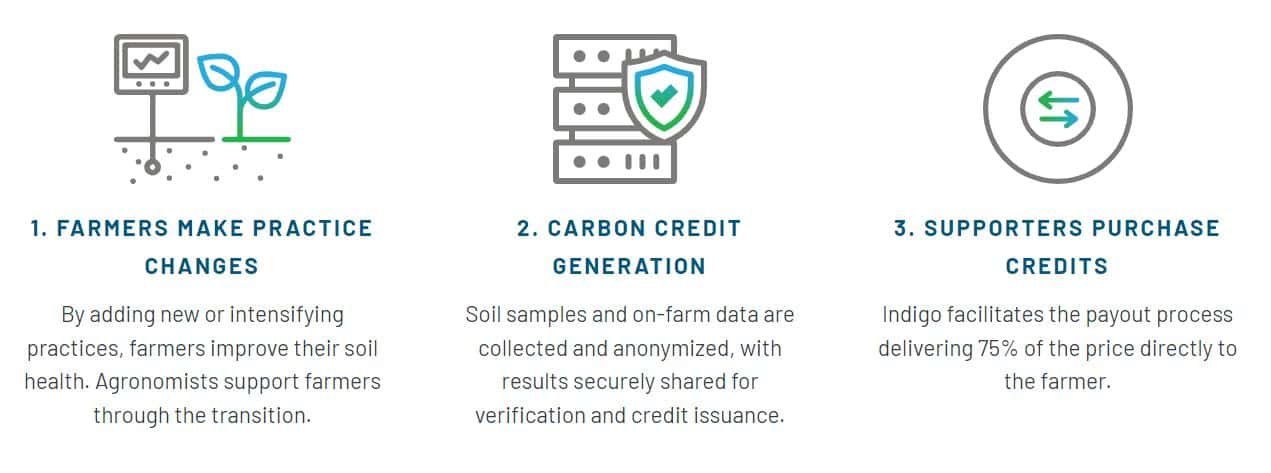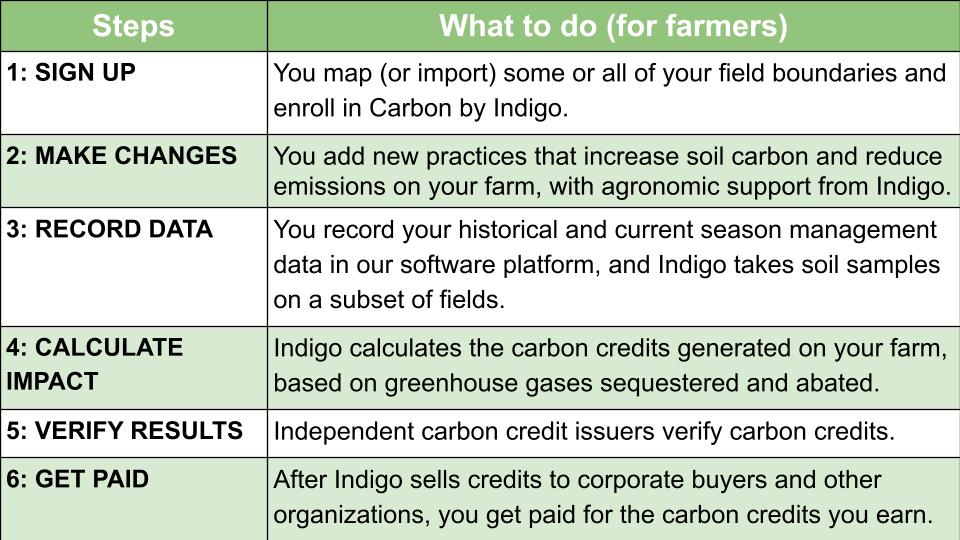Indigo Agriculture announced its first-ever production of 20,000 soil carbon credits that it will sell as emissions offsets to large companies.
U.S.-based Indigo Ag harnesses science and technology to help improve the sustainability and profitability of the agriculture industry. One of its core products is carbon.
This historic milestone for Indigo’s carbon farming program makes agricultural carbon credits a new revenue stream for farmers. Climate Action Reserve (CAR) will verify and issue these ag carbon credits.
CAR is a non-profit registry and carbon credit standard in California. It’s the largest state-level carbon standard so far.
Indigo Ag Carbon Farming Program
Indigo’s carbon farming program is one of the projects by agriculture firms tapping market-based solutions to capture and store carbon on the farm’s soils. It offers a credible, nature-based climate solution for businesses.
While carbon removal technologies are emerging to help limit global warming, they face the major challenge of scale up. Meanwhile, nature-based solutions have been around in removing greenhouse gases.
Agriculture has historically produced less than 1% of voluntary carbon credits. The issuance of these credits shows how farmers can help mitigate climate change. And that’s through one of the world’s biggest and most vital carbon sinks – the soil.
Hence, there has been growing recognition and demand for ag soil carbon credits.
According to Indigo CEO Ron Hovsepian:
“It is hard to overstate the importance of this milestone… This issuance validates the role of agriculture in meeting the world’s urgent need for the kind of sustainability and climate solutions… that Indigo’s network of farmers, soil scientists, buyers, and partners have worked tirelessly to realize.”
CAR’s issuance of 20,000 farm soil carbon credits is the very first for generating quality offsets via a carbon farming program. It’s part of the growing voluntary carbon market which experts expect to reach $50 billion by 2030.
Indigo said that partnering with the CAR would reassure buyers of its ag soil credits. Their credit buyers include JPMorgan Chase, Barclays and The North Face.
As for CAR’s President,
“This milestone is the result of a collaborative effort to create an innovative, robust solution for accurate, cost-effective credit generation in agriculture… These credits are tangible evidence that farmers gain a new credible source of income and benefit from the massive global investment in carbon credits needed to solve the climate crisis.”
Here’s how ag carbon credit generation by Indigo works:
Generating Soil Carbon Credits
Indigo adopted a hybrid approach that combines soil sampling and modeling to help farmers generate ag carbon credits that meet industry quality standards.
The CAR then verifies and issues the credits for the use of Indigo’s global network of about 20 entities committed to buying credit offsets.
The credits reflect the works of 175 growers/farmers who shifted to climate-friendly farming practices. Others call this regenerative farming that involves planting cover crops and less soil tillage. They cover over 100,000 acres of land during the 2018-2020 growing seasons.
Indigo plans to at least double the amount of credits offered in its next tranche.
There are concerns, however, that make some farmers still hesitant to join carbon farming programs. These are:
- Reluctance to make disruptive changes to farming practices
- Hesitant to take on the added costs for things like cover crop seed.
But soil carbon credit buyers, especially the big companies, are willing to pay for their environmental value.
In fact, Indigo contracted to sell the credits at $40 per ton, up 100% from $20 in 2020. Farmers who sequester carbon for about 0.3 to 0.6 tons per acre will receive 75% of the price.
Here are the steps how farmers can earn carbon credits via Indigo’s carbon farming program:
To date, there are almost 2,000 farmers and 5 million acres enrolled in Indigo’s carbon farming program. The firm and its partners give farmers the tools they need to take part in the carbon market and enjoy its benefits.
Indigo’s second carbon credit issuance will be early next year. The firm expects it to be at least double the size of its first tranche.



